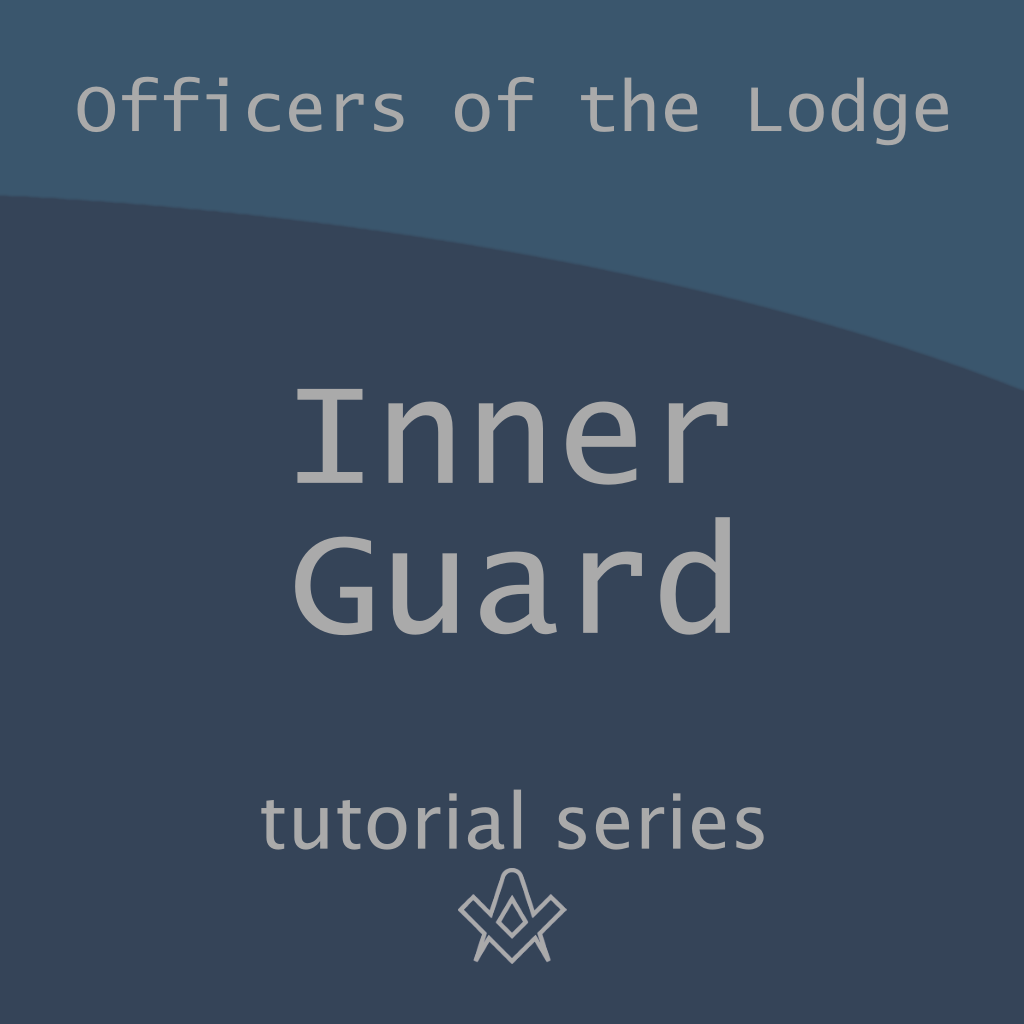Who is the Inner Guard being placed inside the door of the lodge, symbolically our main survival instincts
This is a 2 of 6 part tutorial series on the Officers of the Lodge
Each part published monthly in The Square
Lodge Officers: The Tyler, Inner Guard, Deacons, Junior Warden, Senior Warden, Worshipful Master
The Inner Guard – Instinct
Human Beings have three main survival instincts: Self-Preservation, Sexual, and Social. Let us, for a moment, concentrate on the Social instinct.
From the parent/child relationship and a longing to care and be cared for, we (Human Beings) form an ‘instinct’ of closeness.
That instinct continues throughout our life, forming friendships whether one-on-one, or in groups.
That closeness, or sense of connection, leads to a positive feeling of reward.
Freemasonry is founded on a code of social morality. So are human beings naturally moral?
The 13th century Christian theologian, Thomas Aquinas, says that ‘some moral law comes from divine authority, others from natural law and still others from civil authority’.
Charles Darwin stated in his book The Descent of Man:
‘I fully subscribe to the judgement of those writers who maintain that of all the differences between man and the lower animals the moral sense or conscience is by far the most important.’
However, Jack P. Hailman, who wrote an article in Scientific American December, 1969, subtly entitled ‘How an instinct is learned‘, says;
‘Perhaps stereotypical behaviour patterns (of animals) also require subtle forms of experience for development’
He goes on to say;
‘instincts emerge each generation through a complex cascade of physical and biological influences’.
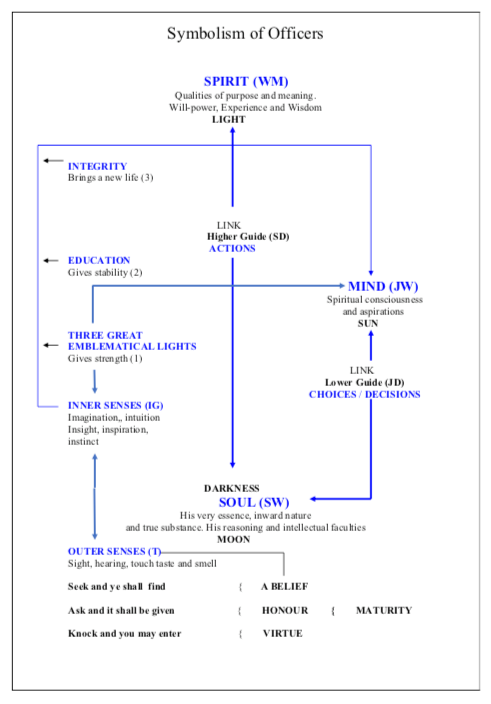
Action
Remember in my last piece I wrote about Betari’s Box – ‘My attitude affects my behaviour….etc.’ What subtleties during your informative years affect your behaviour?
Information
With these pieces of information in mind let us look at the role of the Inner Guard as explained by W. L. Wilmshurst in his book The Meaning of Masonry.
Wilmshurst suggests the Inner Guard represents your inner senses; that of imagination, intuition, insight, inspiration and instinct.
So let us look more closely at our inner senses as defined by the Cambridge Dictionary:
Imagination – The faculty or action of forming new ideas or images or concepts of external objects not present to the outer senses.
With imagination and the wisdom and experience of your ‘Spirit’ and your ‘Spiritual Consciousness, you can ask the question: ‘Will this person, idea, or concept be of benefit or harm to you?’
Intuition – The ability to understand something instinctively, without the need for conscious reasoning.
With intuition and the wisdom and experience of your Spirit as well as your Spiritual Consciousness you can ask the question: ‘Will this person, idea, or concept be of benefit or harm to you?’
Insight – The capacity to gain an accurate understanding of someone or something.
With insight and the wisdom and experience of your Spirit as well as your Spiritual Consciousness, once again ask the question of yourself: ‘Will this person, idea, or concept be of benefit or harm to you?’
Inspiration – The process of mental stimulation to do or feel something, especially to do something creative. The quality of being inspired or a person or thing that inspires.
With inspiration and the wisdom and experience of your Spirit as well as your Spiritual Consciousness, ask: ‘Will this person, idea, or concept be of benefit or harm to you?’
Instinct – A natural pattern of behaviour in response to certain stimuli – a natural or intuitive way of thinking – a natural propensity or skill of a special kind – the fact or quality of possessing in born behaviour patterns.
And finally, asking the same question of yourself – with instinct and the wisdom and experience of your Spirit, as well as your Spiritual Consciousness: ‘Will this person, idea, or concept be of benefit or harm to you?
Now we can examine and apply those inner senses to the duties of the Inner Guard.
Duty 1
Placed within the entrance to the Lodge
Nature has placed within you an instinct, an intuition, an inspiration, an imagination, an insight, in order to protect you from those people, ideas and concepts that may tempt you from your path of integrity and morality.
Duty 2
Report to the Worshipful Master (WM = Your ‘Spirit’ – your experience and wisdom) when Brethren claim admission.
With both your outer and inner senses on alert, people that you know have a specific level of integrity and morality, and seek to be part of your sphere of friendship.
You seek permission and authority from that part of you that has experience and wisdom to authorize and welcome their entry, that is your Spirit and Spiritual Consciousness.
Duty 3
Admit Mason’s on proof (like-minded individuals who have proved their integrity and morality and who are on the same path as yourself)
Having gained authority from your Spirit and Spiritual Consciousness, you warmly welcome them into your life.
Duty 4
Receive the Candidates in due form (Like minded individuals who have proved their integrity and morality and who are seeking the same path as yourself).
Having gained authority from your Spirit and your Spiritual Consciousness, you warmly welcome them because they bring a fresh, new dynamic to your life.
Duty 5
Obey the commands of the Junior Warden (JW = Your ‘Mind’ – Your Spiritual Consciousness.)
Your Spirit, with wisdom and experience, communicates with your Spiritual Consciousness and asks: ‘Would it be morally right to let this person, this idea, this concept, this action, into your life and be part of who you are?’
This is the process a Freemason must go through within himself upon meeting another person, accepting another concept or idea, or taking an action. A process to guard his integrity and his morality.
Conclusion
Your Inner Guard, therefore, is governed by your Spiritual Consciousness ensuring you act or behave in a way that is socially and morally acceptable within your society and before your God. It is also having the imagination to inspire others with your actions, the actions of a good man, a Freemason.
My attitude affects my behaviour, which affects your attitude and your behaviour – Betari Box
Footnotes
References
The Meaning of Masonry, W. L. Wilmshurst, 1920
‘The Natural Law Tradition in Ethics’, Stanford Encyclopedia of Philosophy
Attachment Theory, National Police Public Order Training, John Bowlby, 1969
Betari’s Box Theory – National Police Public Order Training Curriculum ‘Guidance for Trainers’, 2016.
The Descent of Man (Chap. III pp 67-102) Charles Darwin, 1871
Scientific American (Journal) December, 1969. ‘How an instinct is learned’ Jack P. Hailman
Cambridge Dictionary dictionary.cambridge.org
Lodge of Union No. 38 (UGLE) Ritual Book.
Article by: Stephen J. Goulding

Stephen was initiated into Freemasonry in 1978 in Tylney Lodge No. 5856 (UGLE). He was Master in 1989 & 2004.
He was Master of the Lodge of Union 38 (UGLE) in 2018. He is also a PZ in the Holy Royal Arch and PM in the Mark Degree.
Stephen served 30 years in the Metropolitan Police Service (London, England) before going into education in 2000, where he became a college lecturer and a mentor for both the college and the University of Greenwich (London, England). Now retired, he teaches Tai Chi and Qigong in the community.
Facebook: Steve Goulding-Tai Chi West Sussex–Chi at Chi
Recent Articles: officers of the lodge
 Tyler: The significance as the protector of the lodge's secrets and harmony. Tasked with guarding the entrance, the Tyler symbolizes our spiritual and moral boundaries, ensuring only worthy candidates are allowed into the sacred space of Freemasonry's teachings and rituals. |
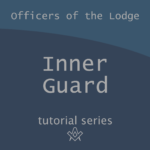 Officers of the Lodge - Inner Guard Inner Guard: Is the first line of defence against unworthy intruders, the Inner Guard represents our inner conscience and the personal responsibility we have to safeguard the integrity of our spiritual journey. |
 Officers of the Lodge - Deacons Deacons: The messengers and intermediaries within the lodge. Representing the communication between the material and the spiritual realms, Deacons symbolize the importance of transmitting knowledge and wisdom as we strive for personal growth and enlightenment on our Masonic journey. |
 Officers of the Lodge - Junior Warden Junior Warden: Ensuring the well-being of the brethren during the lodge's hours of refreshment. Representing the virtue of temperance, the Junior Warden reminds us to find balance in our lives and cultivate moral discipline in our pursuit of truth. |
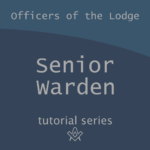 Officers of the Lodge - Senior Warden Senior Warden: embodies the essence of strength and stability within the lodge. As the pillar of support for the Worshipful Master, the Senior Warden symbolizes the fortitude required on our spiritual journey, inspiring us to persevere in the face of adversity |
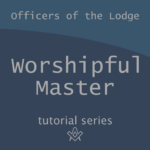 Officers of the Lodge - Worshipful Master Worshipful Master: the highest-ranking officer in the lodge, is the embodiment of wisdom and authority. The Worshipful Master guides the brethren on their spiritual path, representing the divine light that illuminates the Masonic quest for knowledge and self-discovery. |
masonic knowledge
to be a better citizen of the world
share the square with two brothers

click image to open email app on mobile device


